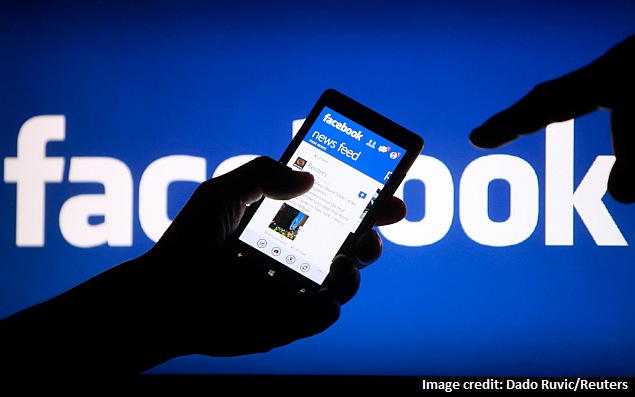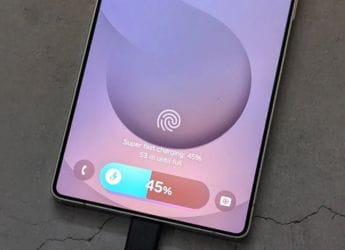- Home
- Social networking
- Social networking Features
- Big profit at Facebook as it tilts to mobile
Big profit at Facebook as it tilts to mobile

About 757 million people around the world used the social network on an average day last month, and three-quarters of them logged on using mobile devices.
Facebook's business has also been transformed. In 2012, most of its money came from generic banner ads delivered to users visiting its site by desktop computer. In the fourth quarter of 2013, 53 percent of the company's advertising revenue came from pitches delivered to iPads, smartphones and other mobile devices, with many of those ads highly targeted by gender, age and other demographics.
"I think it's inarguable that Facebook is a mobile-first company," Facebook's chief financial officer, David Ebersman, said in an interview.
The ascendance of mobile, both in use of the site and advertising, was apparent in Facebook's strong fourth-quarter financial results, which the company reported Wednesday.
Facebook had total revenue of $2.59 billion in the quarter that ended Dec. 31, up from $1.59 billion in the same quarter a year ago. Revenue from advertising was $2.34 billion, up 76 percent from the previous year.
Net income was $523 million, or 20 cents a share, in the quarter, compared with $64 million, or 3 cents a share, in the previous year's fourth quarter, when heavy stock compensation costs related to Facebook's initial public offering depressed results. Using a measure that excludes those compensation costs, profits were up 83 percent.
"It's hard to see any flaws in this quarter," said Ron Josey, an analyst at JMP Securities. "They're seeing demand for their ad product go through the roof."
Ebersman told investors in a conference call that despite selling 8 percent fewer ads, the average effective price for a Facebook ad was up 92 percent compared with the previous year.
Shares of the company surged on the results, which were significantly better than Wall Street had expected. The stock, which closed down about 3 percent in regular trading before the earnings were released, rose as much as 10 percent in after-hours trading.
Given that Facebook had virtually no mobile presence in 2012, the transition is a huge turn that now puts the company at the forefront of the industry's shift to serving people on the move.
The company deserves much of the credit for making that switch, said Nate Elliott, an industry analyst at Forrester Research. It revamped its once-clunky mobile apps and introduced better targeting.
But he said the company's principal ad format - messages inserted among the stream of status updates and photos that users share with one another - became mobile largely because that was how users chose to reach their news feeds.
"Their users changed their behavior," he said. "That was pretty much a stroke of luck."
Facebook continued to expand its user base, with about 1.23 billion people logging on to the service at least once a month.
But there remain worries that younger people are abandoning Facebook for instant-messaging service likes Snapchat. In October, the company warned that younger teenagers were engaging less with the service. On Wednesday, executives pointedly declined to discuss whether that trend has continued.
"They must know by refusing to answer the question, they are increasing the urgency with which that question will be asked," Elliott said.
In an interview, Sheryl Sandberg, Facebook's chief operating officer, said that the company had "the best mobile app out there" and garnered about one out of every five minutes that mobile users were online.
She said the company had also been able to demonstrate to advertisers that buying ads on Facebook was effective. "Our investments in being able to prove results to marketers have really paid off," she said.
The company has refined its ad targeting so that marketers can reach the demographics they most precisely want to hit, while also simplifying the options for smaller businesses, she said.
Facebook accounted for more than 18.4 percent of worldwide mobile ad spending in 2013, according to the research firm eMarketer, up from 5.4 percent in 2012. Google still commands the greatest presence in mobile ads, primarily through search, with 53.2 percent of the market.
Mark Zuckerberg, Facebook's co-founder and chief executive, said on the investor call that the company still had a lot of growth ahead.
Despite more than 1 billion users, "we're still a small part of the world's population," he said.
And Facebook has grand plans to make ads more relevant and to help users better sift through the more than 1 trillion pieces of information that have been shared so far. "We're really early in the game on this," Zuckerberg said.
© 2014, The New York Times News Service
Get your daily dose of tech news, reviews, and insights, in under 80 characters on Gadgets 360 Turbo. Connect with fellow tech lovers on our Forum. Follow us on X, Facebook, WhatsApp, Threads and Google News for instant updates. Catch all the action on our YouTube channel.
Related Stories
- Samsung Galaxy Unpacked 2025
- ChatGPT
- Redmi Note 14 Pro+
- iPhone 16
- Apple Vision Pro
- Oneplus 12
- OnePlus Nord CE 3 Lite 5G
- iPhone 13
- Xiaomi 14 Pro
- Oppo Find N3
- Tecno Spark Go (2023)
- Realme V30
- Best Phones Under 25000
- Samsung Galaxy S24 Series
- Cryptocurrency
- iQoo 12
- Samsung Galaxy S24 Ultra
- Giottus
- Samsung Galaxy Z Flip 5
- Apple 'Scary Fast'
- Housefull 5
- GoPro Hero 12 Black Review
- Invincible Season 2
- JioGlass
- HD Ready TV
- Laptop Under 50000
- Smartwatch Under 10000
- Latest Mobile Phones
- Compare Phones
- iQOO 15 Ultra
- OPPO A6v 5G
- OPPO A6i+ 5G
- Realme 16 5G
- Redmi Turbo 5
- Redmi Turbo 5 Max
- Moto G77
- Moto G67
- HP HyperX Omen 15
- Acer Chromebook 311 (2026)
- Lenovo Idea Tab Plus
- Realme Pad 3
- HMD Watch P1
- HMD Watch X1
- Haier H5E Series
- Acerpure Nitro Z Series 100-inch QLED TV
- Asus ROG Ally
- Nintendo Switch Lite
- Haier 1.6 Ton 5 Star Inverter Split AC (HSU19G-MZAID5BN-INV)
- Haier 1.6 Ton 5 Star Inverter Split AC (HSU19G-MZAIM5BN-INV)

















